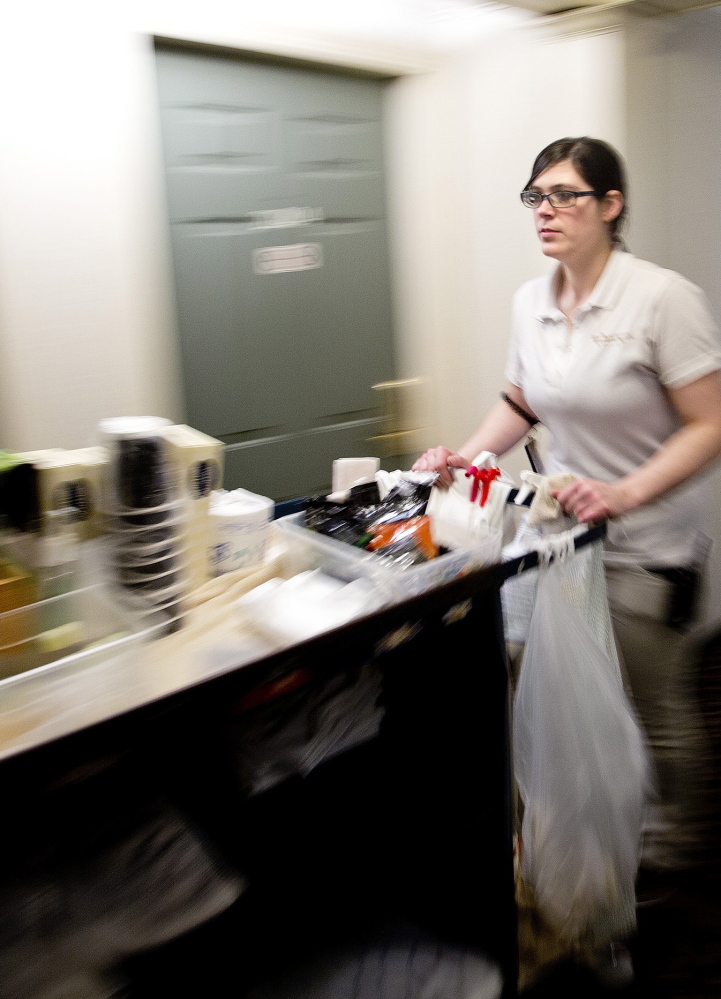AUGUSTA — As we approach the start of the peak season, Maine faces an issue that is unprecedented in our long history. It has the potential of derailing the industry’s growth this year, and for perhaps much longer into the future. This is not a problem with visitor demand or the traveling public’s desire to come to Maine, which continues to be strong. The issue is the state’s crucial worker shortage and the impact this is having on Maine’s restaurants and lodging establishments.
First, some background: Maine is experiencing a workforce crisis because of a convergence of factors.
• Maine is successfully drawing visitors like never before, and the demand trend shows no immediate signs of stopping.
• The state’s unemployment rate is at a historically low 3 percent, the lowest since records were established in 1976.
• We have the oldest workforce in the nation and we are not producing new permanent employees to replace the retiring ones fast enough.
• The 2017 nationwide cap of 66,000 H2B foreign temporary workers was reached March 13, shutting out many Maine businesses that rely on this program to hire workers during the peak season.
I recently traveled to the nation’s capital, accompanied by three of our most experienced innkeepers: Jean Ginn Marvin from The Nonantum in Kennebunkport, Connie Russell from The Samoset Resort in Rockport and Bob Smith from Sebasco Harbor Resort in Phippsburg. We explained the situation directly to Sen. Susan Collins, and Reps. Chellie Pingree and Bruce Poliquin. Sen. Angus King was at a hearing, but we met with his staff and later spoke with the senator by phone.
Four weeks ago, Congress passed the federal budget, which included a bill called the Save Our Small and Seasonal Businesses Act. This legislation was co-sponsored by Collins, King, Poliquin and Pingree, and many other senators and representatives signed on. It would effectively double the foreign worker cap, which would more than meet our needs in Maine.
But unfortunately, the celebration was short-lived, because even though the Department of Homeland Security now has the authority, the agency has yet to act on the thousands of Maine H2B visa requests backlogged in the pipeline.
Maine’s congressional members now fully understand the urgency for the federal government to act. Poliquin is personally calling his contacts at the Department of Homeland Security. He said he will not give up until it’s done! Pingree, who owns an inn on North Haven, understands the problem well and is doing what she can to influence other representatives. Following our meeting, Collins’ and King’s staffs met jointly with the Department of Labor. The Labor Department indicated that Secretary Alexander Acosta would be calling Homeland Secretary John Kelly about the urgent need to restart the H2B review process.
I am hopeful that all these efforts are going to be successful, and soon, because every day pushes the start date for H2B workers later into the season.
Maine’s hospitality industry has achieved back-to-back record years, and we are off to a good start in 2017. However, our fear is that this single issue has the potential to stop that growth in its tracks.
Daily we are learning of restaurants delaying their openings, or in some cases closing, because of a lack of cooks or servers. Historic inns like the Pentagoet in Castine and the Beachmere in Ogunquit are lacking housekeepers and chefs, and are not able to open all their rooms or dining areas. Entire communities like Bar Harbor are missing hundreds of needed workers, equally affecting large and small businesses there.
Ultimately, Congress needs to pass permanent H2B legislation so that this confusing, complex situation does not recur each year. But we also need to create our own home-grown workforce. Both the Maine Restaurant Association and the Maine Innkeepers Association are working closely with the state’s high schools, community colleges and the University of Maine System to establish stronger educational and employment programs that specifically support our seasonal and year round needs.
We are also focusing on less traditional worker sources, such as new Americans (immigrants), older Americans (presently retired) and gig workers (part timers). Our future employment issues will require multi-faceted solutions, and challenge leaders in business, education and government to come up with new ways of thinking.
Maine’s hospitality sector is one of the state’s strongest economic engines. We cannot allow a lack of available workers to be the cause of its decline.
Send questions/comments to the editors.



Success. Please wait for the page to reload. If the page does not reload within 5 seconds, please refresh the page.
Enter your email and password to access comments.
Hi, to comment on stories you must . This profile is in addition to your subscription and website login.
Already have a commenting profile? .
Invalid username/password.
Please check your email to confirm and complete your registration.
Only subscribers are eligible to post comments. Please subscribe or login first for digital access. Here’s why.
Use the form below to reset your password. When you've submitted your account email, we will send an email with a reset code.